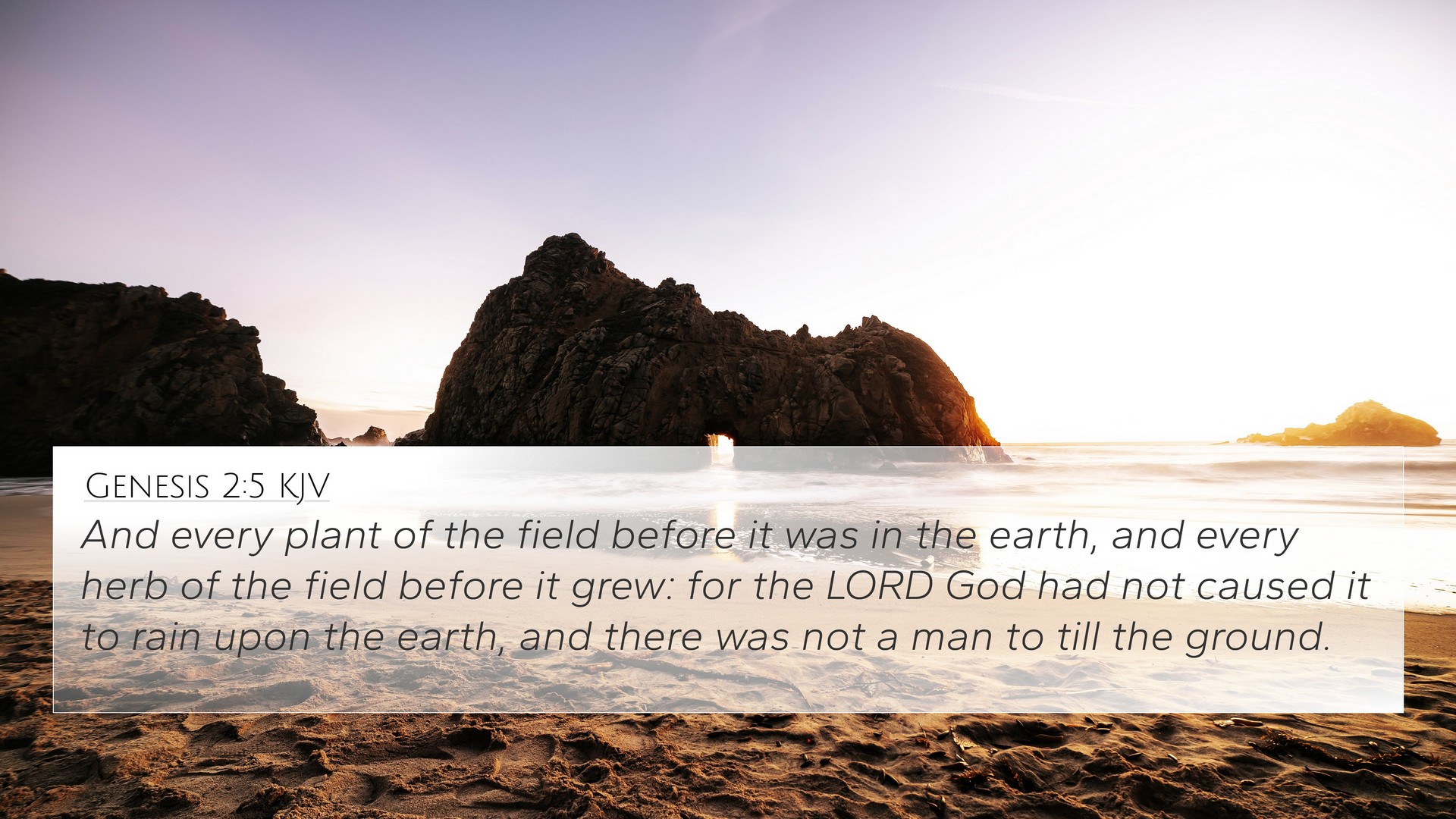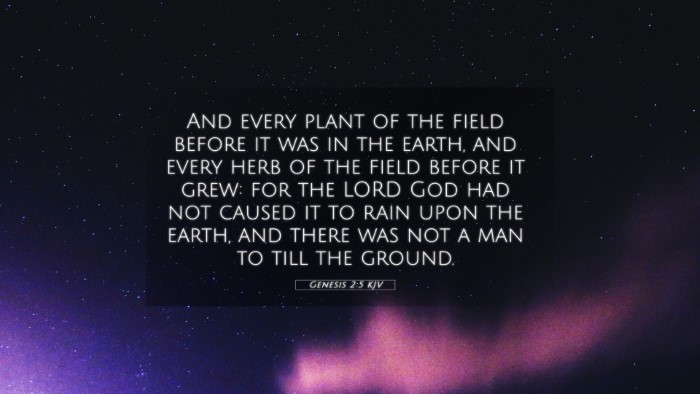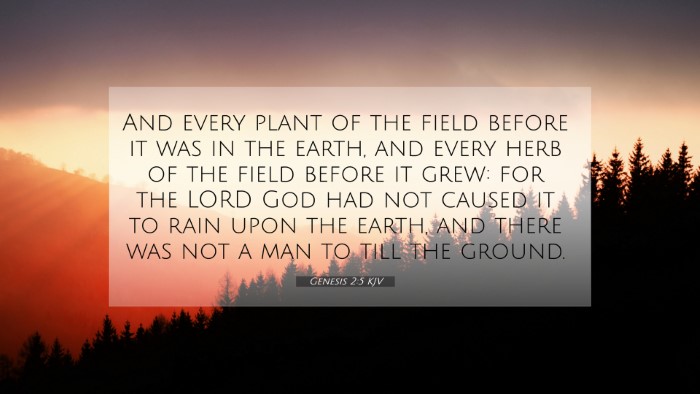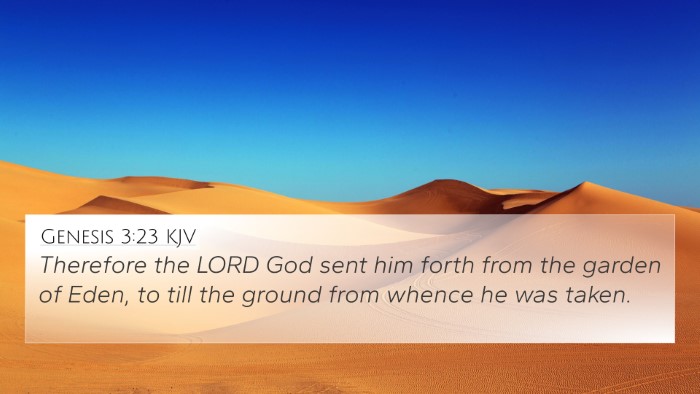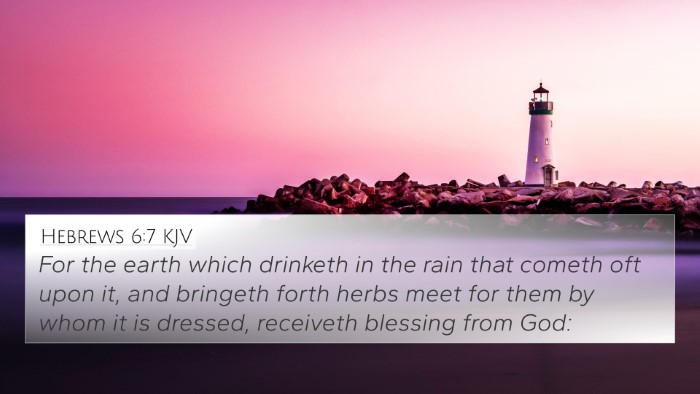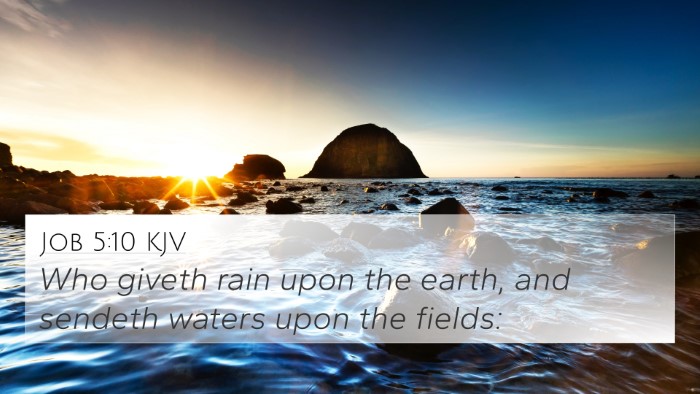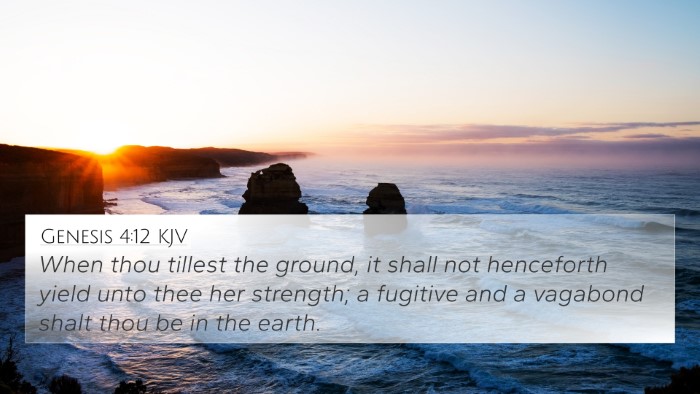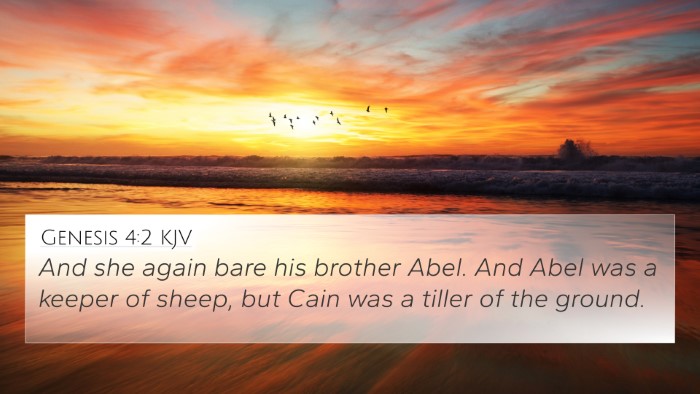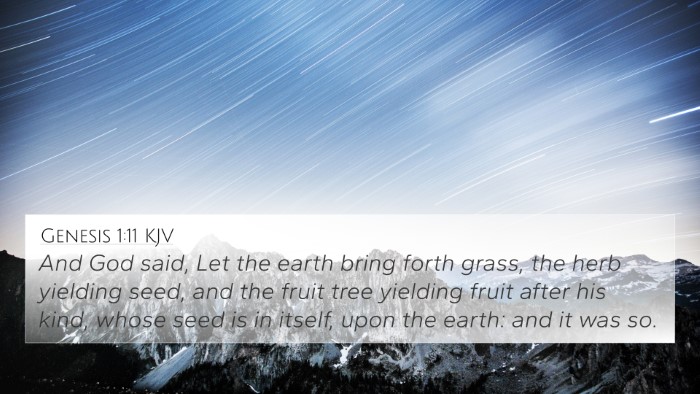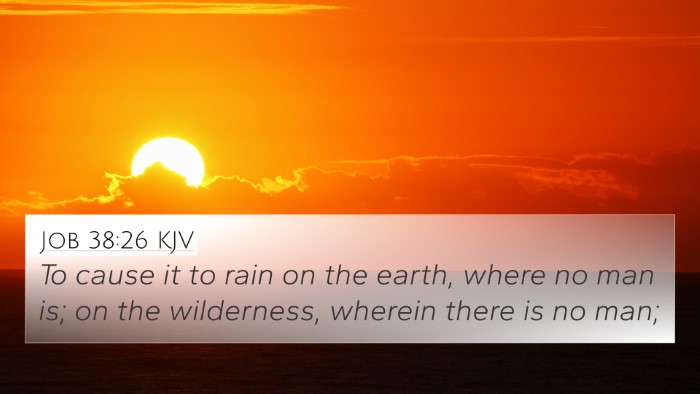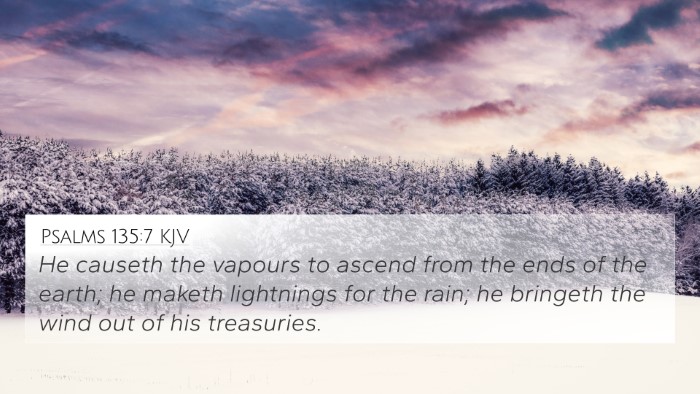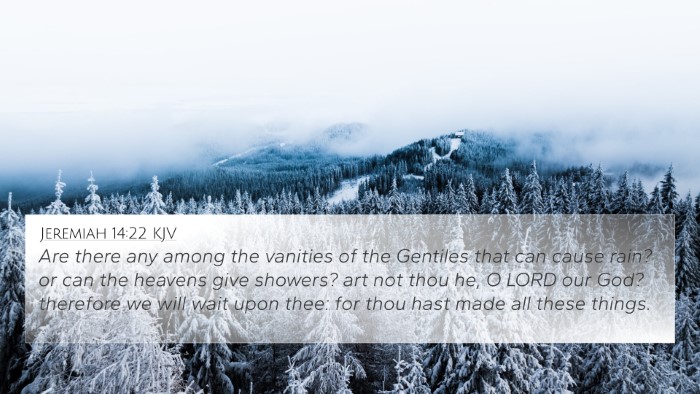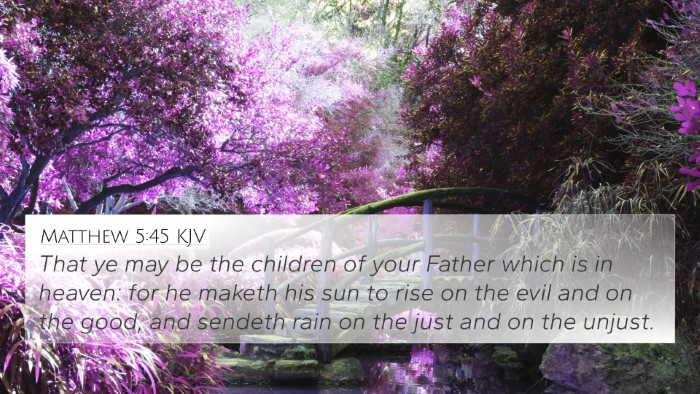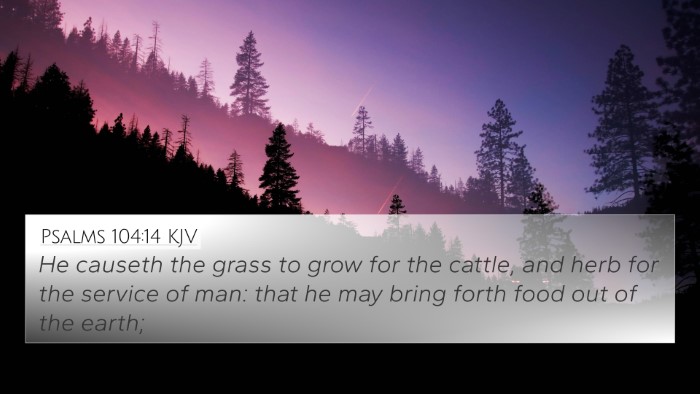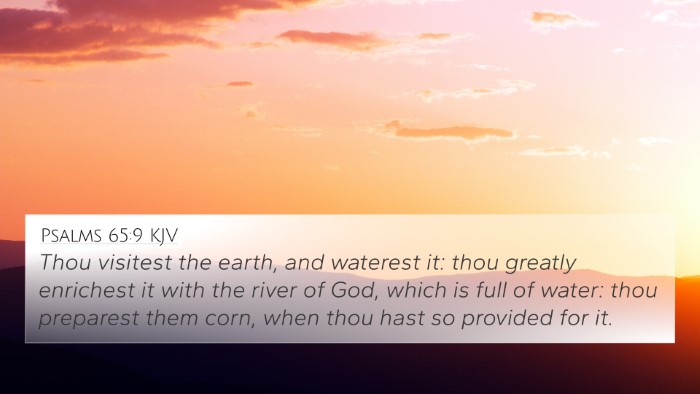Understanding Genesis 2:5
Genesis 2:5 states: "And every plant of the field before it was in the earth, and every herb of the field before it grew: for the LORD God had not caused it to rain upon the earth, and there was not a man to till the ground." This verse speaks to the condition of the earth before God's intervention in creation, unveiling deep theological and practical implications.
Contextual Analysis
In the context of Genesis chapter 2, this verse introduces the reader to the state of the environment prior to the creation of man. It emphasizes two main points:
- Absence of Rain: The mention of no rain signifies that the natural order was not yet in place.
- Need for Stewardship: The phrase "and there was not a man to till the ground" highlights God's intention for human stewardship over creation.
Commentary Insights
Drawing insights from various public domain commentaries:
- Matthew Henry: He notes that this verse highlights God's purpose in creating man to cultivate and care for the earth. Henry emphasizes that God's creation was orderly and purposeful, indicating a harmonious relationship between man and nature.
- Albert Barnes: Barnes elaborates on the significance of the lack of rain, suggesting that God had not yet established a system for plant growth which would later be dependent on man’s work to cultivate the ground. This underlines man’s role in the divine plan of creation.
- Adam Clarke: Clarke interprets this verse as a declaration of the prior state of the world where divine presence and human participation were essential for life. He emphasizes the theological concept of God’s sovereign will in maintaining creation.
Thematic Connections with Other Scriptures
Genesis 2:5 can be linked to several other Bible verses, enhancing our understanding through comparative analysis:
- Genesis 1:26-28: These verses highlight the creation of man and his dominion over the earth, directly correlating with the need for stewardship emphasized in Genesis 2:5.
- Psalm 104:14: This verse celebrates God’s provision for all creatures, further underlining human responsibility in caring for creation.
- Ecclesiastes 2:24: This verse reflects upon the enjoyment of labor, suggesting a deeper connection with Genesis 2:5’s emphasis on tilling the ground.
- Romans 8:19-21: Here, the creation's longing for redemption echoes the need for man’s involvement in cultivating the earth as mentioned in Genesis 2:5.
- Hebrews 2:5-8: These verses discuss humanity’s intended authority over God's creation, aligning with the stewardship theme in Genesis 2:5.
- Matthew 6:28-30: This passage illustrates God’s provision for the flowers of the field, complementing the theme of divine sustenance in Genesis 2:5.
- Revelation 22:2: It describes the river of life and the tree of life in the new creation, suggesting a restored relationship between man and nature initially intended in Genesis 2:5.
Tools and Methods for Cross-Referencing
For readers interested in exploring these connections further, there are several tools and methods available:
- Utilizing a Bible concordance can help locate verses related to specific themes or topics.
- A Bible cross-reference guide enriches your study by providing suggested passages that connect thematically.
- Engaging in cross-reference Bible study empowers deeper understanding through thematic exploration.
- Employing a Bible reference resource allows for a systematic approach to discovering inter-Biblical dialogues.
- Utilizing cross-reference Bible study methods, such as topical studies or character studies, unveils rich insights.
- Identifying Bible chain references encourages exploration of linked themes across scripture.
Conclusion
Genesis 2:5 serves as a foundational verse that intricately ties into themes of stewardship, divine provision, and the established order of creation. By examining this verse alongside related scriptures, readers can appreciate the rich tapestry of theological insights the Bible offers. The study of cross-references not only enhances individual understanding but also fosters a greater appreciation for the interconnectedness of God’s Word.
Final Thoughts
As you dive deeper into the Scriptures, consider how these connections—whether through thematic studies or detailed verse comparisons—can illuminate your understanding of God's instruction and intention for humanity. Genesis 2:5 stands as a testament to the importance of recognizing our role in God's creative plan and the necessity of our engagement with the world around us.
